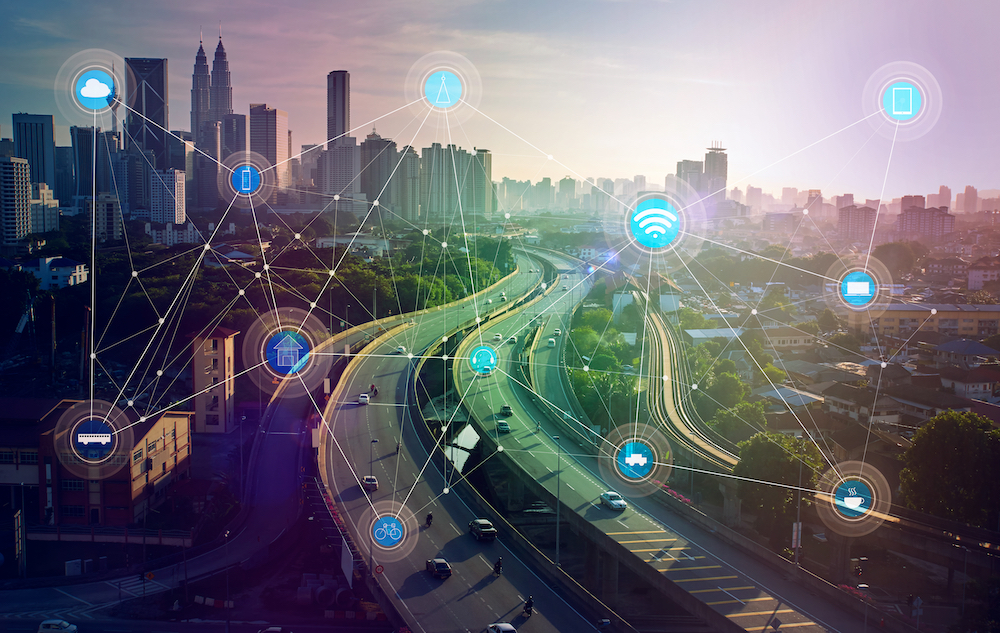
What The Internet of Things Means for Businesses
Along with AI, The Internet of Things is changing the expectations of consumers. It will also change the way that businesses operate. The initial uptake of interconnected smart devices was slower than was forecast. But, the demand for the technology is now developing at a rapid pace. That demand will place new pressures on businesses. It will also provide businesses with new opportunities. Here are some of the ways that the Internet of Things will impact business.
What Is the Internet of Things?
The simple definition of the Internet of Things (IoT) is that it is the interconnection of devices over the internet. It allows devices to communicate with us, with applications, and with other devices. The technology has been demonstrated with the advent of smart home appliances. It’s the Internet of Things that now allows us to control our home heating, lighting, sprinklers and other appliances from our phones with solutions like Apple’s
HomeKit.
How Will the Internet of Things Affect Businesses?
The application of the Internet of Things goes far beyond smart refrigerators and toasters though. The integration of devices will soon affect every business. The IoT offers businesses unprecedented opportunities for gathering data and automating process. It also offers businesses the opportunity of developing new products or services. IoT devices will have a major impact on businesses. Even those that do not operate in the technology sector. Here are some of the ways that IoT devices will change the way that businesses operate.
Greater Access to Data
There has already been controversy about smart devices tracking consumer behavior. However, the use of IoT devices to gather data will increase. Smart devices can track how consumers use a product and, with AI, the technology can make product recommendations to consumers. In the future, businesses will have access to far more data than they have today. It will change the way we target advertising, and it will also begin to drive future product development.
Improved Customer Engagement
The same technology that allows consumers to connect to smart devices in the home will allow businesses to monitor those devices as well. In much the same way as a modern car will alert the driver when a system is failing, or the car is due for a service, customer services systems will be notified when home appliances need repairing or replacing. This will enable better customer service and provide new marketing opportunities.
Working Remote
The IoT is likely to increase the number of people working from home. With access to multiple devices in the office and on the factory floor, many more tasks will be able to be completed remotely. Remote workers are often more efficient and more cost effective. So, the IoT could have a beneficial effect on most businesses bottom line.
Increased Productivity
Smart devices will increase productivity in all types of businesses. The enhanced data analyses that will be possible will streamline many tasks. Ultimately, this may lead to a reduction in headcount in some areas of business.
Create New Consumer Demands
As consumers become more familiar with IoT technology, they will begin to demand things that they don’t currently know they want. Smart Refrigerators that create grocery lists, for example, would have seemed pointless ten years ago. In the future, though, it will probably be a standard feature of all refrigerators.
Improved Inventory Tracking, Management, and Security
Tracing inventory and assets has, for a long time, been a major headache for business. The shipping industry already uses high-tech equipment to track and manage the movement of shipping containers. With the IoT, this type of technology will become available for even the smallest assets. This will free up workers from manual tasks like inventory checks. It will also reduce the theft of inventory and assets.
Shorter Buying Cycles
The Internet of Things will also change the way that consumers buy products. The buying cycle is likely to become shorter. The targeted advertising that the IoT will enable will speed up the buying decision making process. Consumers will also expect faster, more convenient service too. From the verbal placing an order through smart devices like Amazon Echo, to receiving the goods the same day. The need for instant gratification will place new demands on businesses. Businesses will need to employ smart technology, so that they can keep up with consumer demands.
The Internet of Things Bottom Line for Business
The increase in the availability of IoT smart technology will transform business. It will provide more intelligent data, more automation, and it will change consumer expectations. From small time saving devices, to major product enhancements, IT is about to become an integral part of the product, rather than an afterthought. Consumers will demand faster and ever smarter devices. They will also demand faster and better services. It’s the smart businesses that invest in IoT technology and custom applications
now that will be able to keep pace with these new demands.
Search
Subscribe To Our Blog
Enter your information to subscribe to the Aezion blog digest.
Recent Posts
- What are the 4 Types of Business Analytics? March 13, 2024
- The Benefits of Web-Based Systems for Business March 12, 2024
- 5 Types of Cloud Computing: What are They and How do They Work? November 20, 2023
- The Five Stages of Business Intelligence (BI) November 06, 2023
- What is QA Testing: Best Practices for Quality Assurance March 09, 2023
Archives
Categories
- Articles
- Artificial Intelligence
- Blockchain
- Business Intelligence
- Custom Software
- DApp
- Data Analytics
- Data Management
- Dedicated Development Teams
- Digital Marketing
- Docker Containers
- Ethereum
- Machine Learning
- Mobile Applications
- Natural Language Processing
- News
- Process Automation
- Python
- Smart Contracts
- Software Quality
- Stratis




